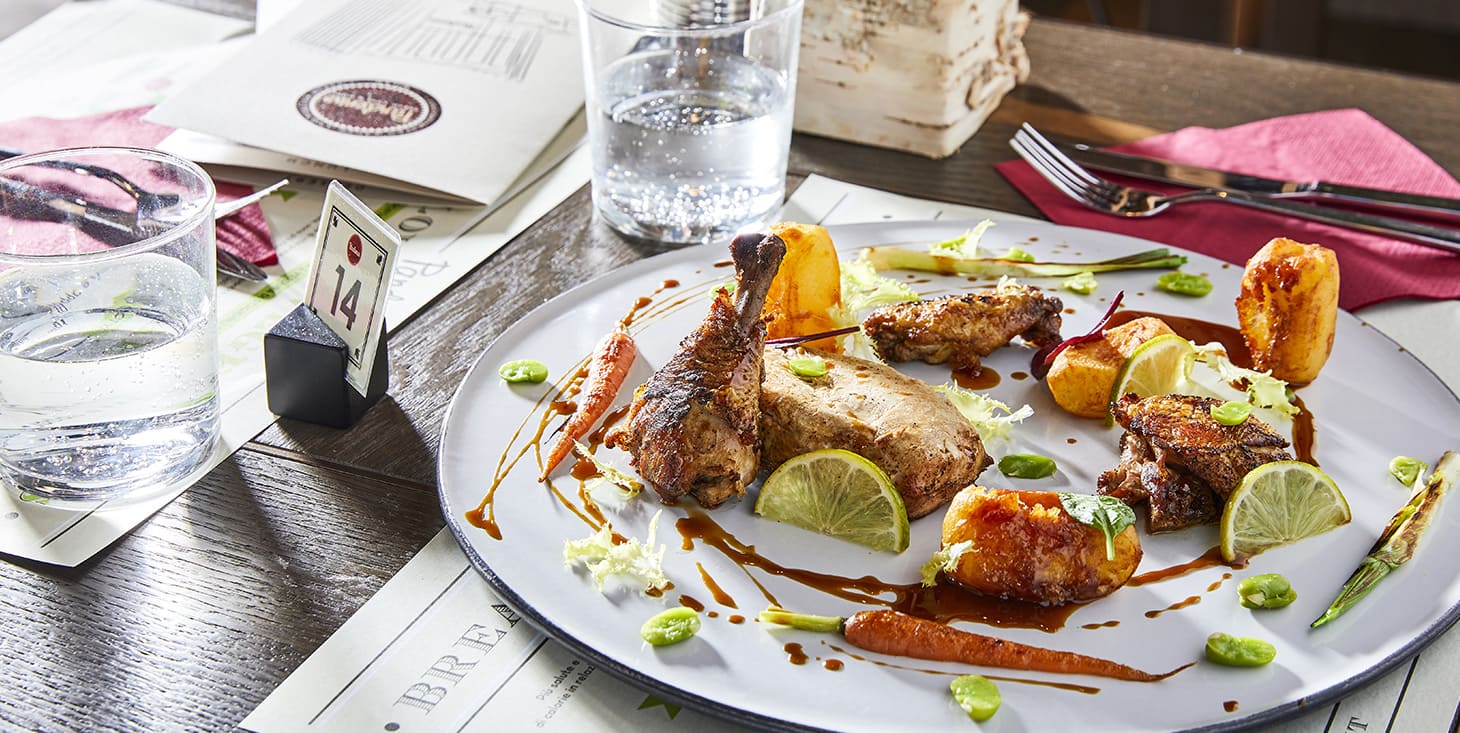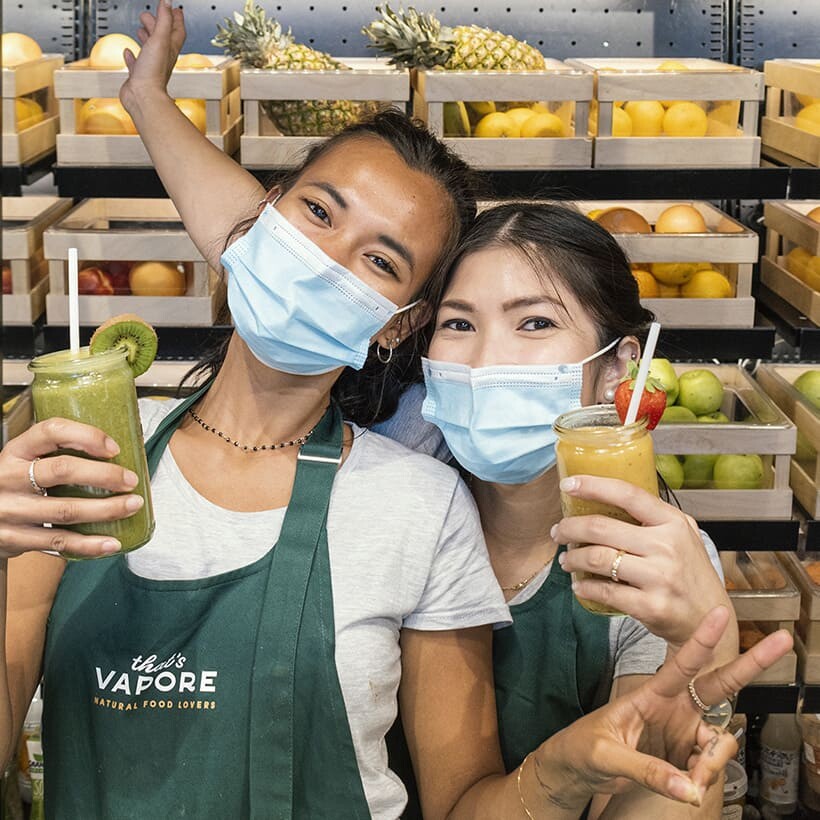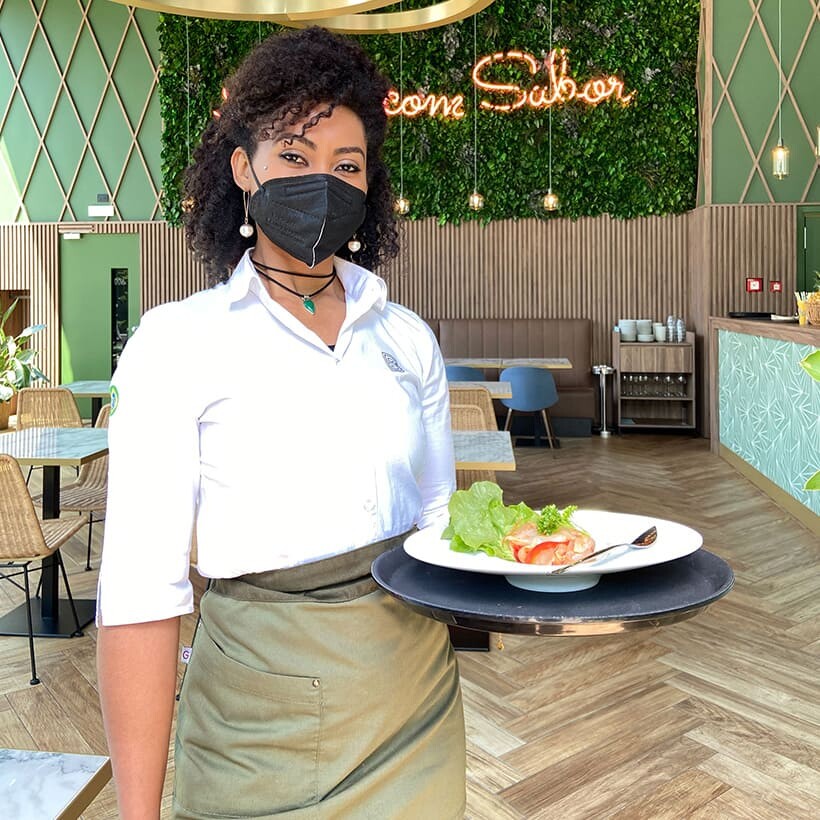“In dark times… switch on the light!”: a journey through post-lockdown catering at Portanuova.
By the voices of some of the food&beverage entrepreneurs at Portanuova, a journey among lockdowns and “flash” re-openings, resizing and adjustments to a 3 color codes that as a whole have markedduring the darkest times ever. One statistic above all others: the boom of takeaway and delivery services. An explosion of “clicks”… without a “clock” (since orders come in at every time of the day) that – along with being the sector’s lifeboat – paved the way for a new form of consumption that is certainly not new but has now become essential. This international contingency on one hand has penalized businesses, but on the other has allowed them to draw a personalized curve, that of the most “clicked” dishes: the new winning horses of the present – and pretty safe bets for the future, too.

We have interviewed for you:
Alessio Lupo of Batukada, serving state-of-the-art caipirinhas and Brazilian sushi signed by world-class chef Jean Carlo de Lima in “an experience of food and culture”.
12 Via Amerigo Vespucci
Alessandro Melis of Pandenus, a chain of 8 restaurants in downtown Milan, 2 of which boasting luxury rooms (inn), with a range of products for every meal and hour of the day, from coffees to high-end cuisine, under the name of multi-starred chef Enrico Bartolini.
12 Piazza Gae Aulenti
Vanni Bombonato, committed to fighting food waste, hunger, deforestation, and plastic, and creator of That’s Vapore food stores, which are “Good for you, good for the world”: “green” locations in every way, from the renewable energy used to power them to eco-friendly receipts.
Underground level - Piazza Gae Aulenti

How were things “before”? Not bad, it seems. Even at Batukada, a late-2019 project that – despite its intention to open to the public (guess when?) in March 2020 – has only worked 2 months, though in full throttle: “Let’s say this was a dress rehearsal, and it gives us high hopes for the future”, states Alessio Lupo. Just like Pandenus, which was forced to limit entrances even before the pandemic, given a large number of people at the door. To fight the decline following closures, all the restaurants and cafés have relied on delivery and takeaway, and when in-person consumption became possible they distanced the tables, sanitized the spaces, restricted the access, and adopted every legal measure. They also launched social network campaigns to promote online orders.
Delivery, which has – let alone the current need – become a trend, seems to be evolving as a useful loyalisation tool in parallel to in-person consumption and ready to respond to new orders, even now that the gradual, long-awaited re-opening is occurring. For example, Pandenus thanks its customers with a free gianduiotto for every box delivered: “a little, but very appreciated gesture”. Besides the turnover slump, the unpredictability of the times causes the struggle to plan the quantity of raw ingredients to order from suppliers. Just think about Batukada’s fresh fish and its extremely short preservation time. A common solution is to reduce the menu items to limit unnecessary expenses and, above all, food waste, which chefs have always fought against, every day, even before the pandemic. Resizing the menu means prioritizing bestsellers, but there are limitations and differences in any case. The menu at That’s Vapore cannot be resized, as it would mean completely giving up the nature of its cuisine; Batukada, on the other hand, considers its “on the grill” menu not deliverable and requiring immediate consumption; Pandenus has reduced its takeaway menu by 60% compared to the one found online, for instance by offering 2 poke dishes instead of 3. No harm done. Online orders certainly have one advantage: they let you calculate a “curve” of favourite dishes by analysing purchase data. That’s Vapore, which maintained the same menu both online and offline, has recorded that click-to-buy is fully oriented towards customizable dishes such as poke, whilst offline (takeaway) customers show more transversal preferences, because they like to pick up and try new dishes each time.

As well as adjusting the takeaway list to the macrotrends of digital orders, Pandenus also tweaks it depending on outdoor consumption: the Gae Aulenti restaurant offers a takeaway menu designed for consumption at the BAM, on the benches or on-the-go. Delivery is offered to respond to a growing demand, although it clashes with the mission of catering where lifestyle and music are at centre stage, thus the setting and company key ingredients. Alessandro Melis of Pandenus also tells us that since May 2020 none of his 120 employees has caught the virus: an excellent indicator of the good conduct followed at the workplace, but even a message sent to institutions, inviting them to promptly allow the full reopening of such restaurants, which respect the rules and have been completely safe for months, even outdoors, where eventual gatherings of takeaway clients are always dissuaded by the owners. Is there something we should cherish of these difficult moments? Vanni Bombonato states that he found out he’s stronger than he thought, and when the virus will finally “raise the white flag”, things will go downhill.
Lupo from Batukada, who will maintain both takeaway and delivery even after the emergency, tells us about a team that despite the dark times has not quit, but switched on the light and offered its free time to the business. A demonstration of great humanity in such a tough year.
Melis from Pandenus confirms this “romantic” aspect and adds to it, stats-at-hand, a new phenomenon: restaurants with outdoor spaces or overlooking green areas are growingly popular. If we think about, for example, the BAM, the District will play a leading role in this re-birth, you can count on it!